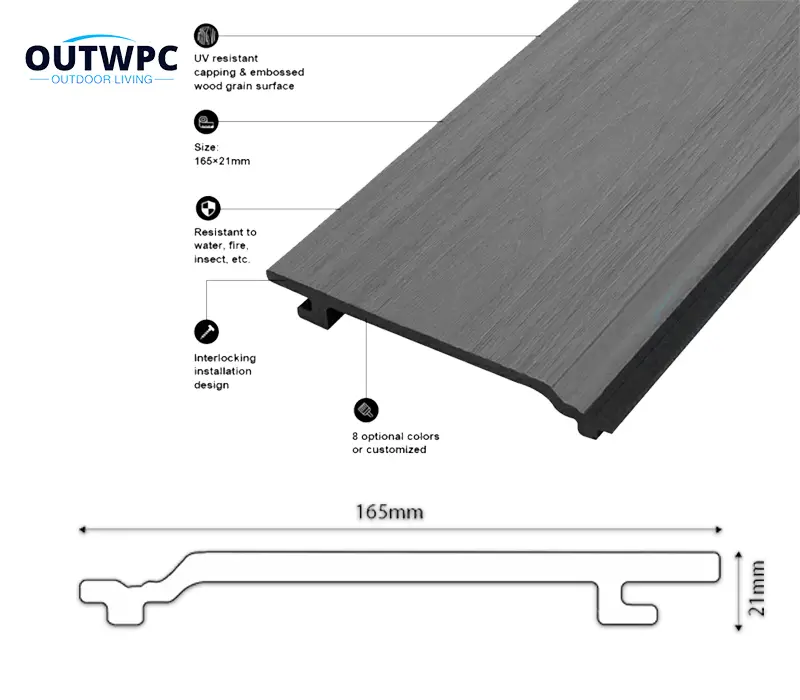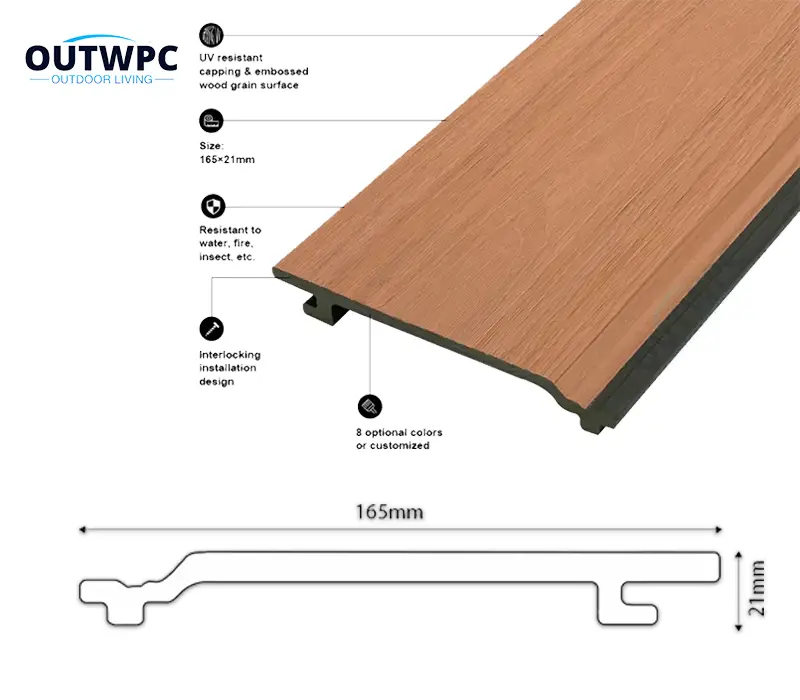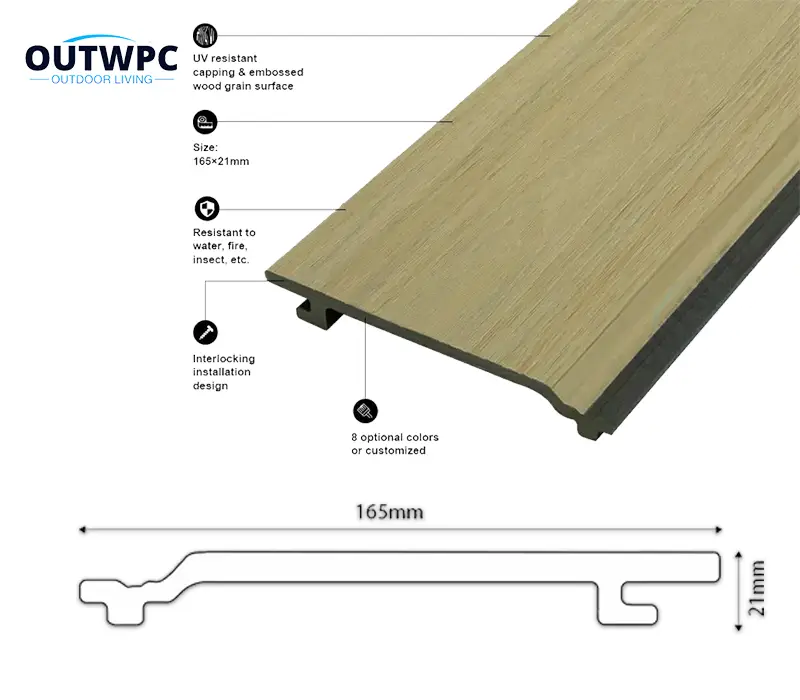Exterior composite cladding has emerged as a leading choice for homeowners and architects seeking a blend of aesthetic appeal, durability, and low maintenance for their projects. With a potential lifespan of up to 25 years, understanding the factors that influence this longevity is crucial for anyone considering composite cladding for their exterior walls. Below, we delve into the essential aspects that determine the durability of composite cladding and offer advice on selecting the right product for your needs.

Factors Influencing the Lifespan of Composite Cladding
- Quality of Materials: The cornerstone of long-lasting composite cladding lies in the quality of its components. High-grade wood fibers, plastics, and additives ensure superior durability, enabling the cladding to withstand the rigors of weather and time. Selecting cladding made from premium materials is the first step toward extending its life.
- Proper Installation: Even the highest quality cladding can fail if not installed correctly. Incorrect installation can lead to issues such as water penetration and structural damage, significantly reducing the cladding’s lifespan. Adhering to the manufacturer’s installation guidelines or opting for professional installation can mitigate these risks.
- Regular Maintenance: Composite cladding’s low-maintenance nature is one of its most appealing features. However, “low” doesn’t mean “no” maintenance. Regular cleaning and inspections can prevent the buildup of mold, mildew, and dirt, preserving the cladding’s appearance and integrity.
- Environmental Factors: The local climate plays a pivotal role in the longevity of composite cladding. Areas with extreme weather conditions, high humidity, or significant UV exposure can accelerate wear and tear. Opting for cladding materials specifically designed to resist these environmental challenges is essential for those living in harsh climates.
How Long Does Composite Wall Cladding Last >>
Advantages of Durable Composite Exterior Cladding
Choosing composite cladding for your exterior walls comes with numerous benefits:
- Cost-Effectiveness: The reduced need for complex upkeep translates to lower ownership costs over time compared to traditional cladding options.
- Enhanced Property Value: Well-maintained composite cladding boosts the aesthetic appeal and can increase the resale value of your property.
- Ease of Maintenance: Simple cleaning routines are sufficient to keep composite cladding looking its best.
- Peace of Mind: The durability and weather resistance of composite cladding offer homeowners confidence in their investment, even in the face of adverse weather conditions.
The Evolution and Advantages of WPC Wall Panels: Indoor vs. Outdoor >>
Selecting the Right Composite Cladding for Your Project
When choosing composite cladding, consider the following:
- Durability and Weather Resistance: Assess the typical weather conditions in your area and select cladding that can withstand those challenges.
- Aesthetic Preferences: Cladding contributes significantly to the visual appeal of your property. Choose a style and color that complements your home’s design.
- Budget: Factor in both the initial cost and potential long-term savings when selecting your cladding. High-quality options may have a higher upfront cost but offer greater durability and lower maintenance costs.
- Warranty: A longer warranty period often indicates a manufacturer’s confidence in their product’s durability. Compare warranty terms to ensure you’re getting the best value.
Revolutionizing Outdoor Spaces with WPC Wall Panels >>
By considering these factors and opting for quality composite cladding, you can enjoy an attractive, durable, and low-maintenance exterior for years to come. Remember, the right preparation, selection, and care can significantly extend the life of your composite cladding, making it a wise investment for any property.






